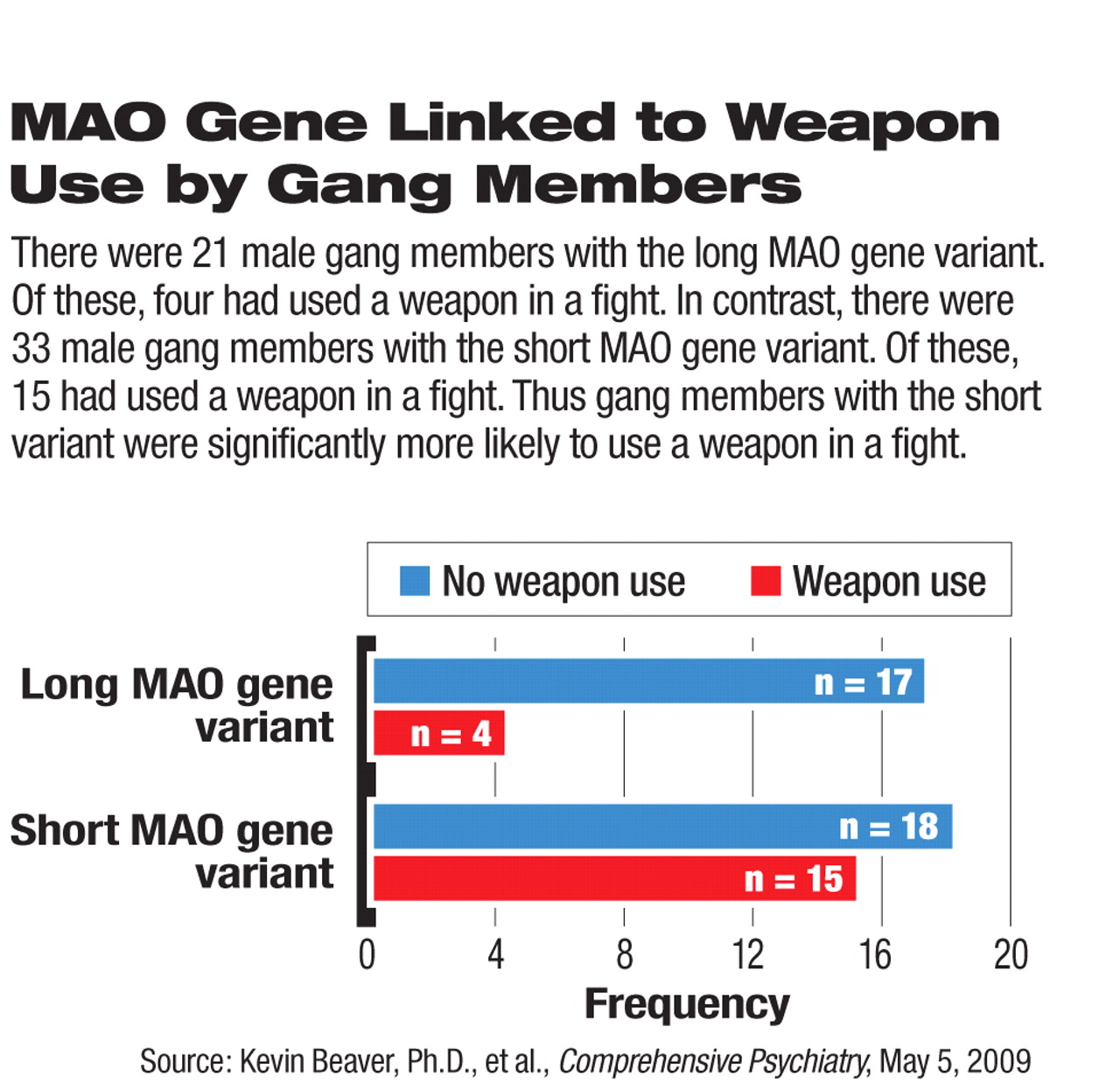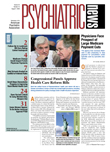Male teens who possess the short variant of the monoamine oxidase (MAO) gene are twice as likely to be gang members as are male teens who have the long variant of the gene.
So reported Kevin Beaver, Ph.D., an assistant professor at Florida State University College of Criminology and Criminal Justice, and his colleagues online, on May 5, in Comprehensive Psychiatry.
Their study included some 2,000 teens equally divided by gender. They evaluated the teens for the presence of the short or long variant of the MAO gene. They also determined whether the teens were members of a gang, and if so, whether they used a weapon in a fight.
The researchers then looked to see whether they could find any link between possessing the short MAO gene variant and being a member of a gang. They found no such link in the female teens, but they did in the males.
The gender difference is understandable, Beaver told Psychiatric News, because the short MAO gene variant had already been linked with a spate of antisocial behaviors in males (Psychiatric News, November 3, 2006; December 1, 2006; August 1, 2008).
But another study finding did surprise him, he said. It was that among male gang members, those who use weapons in a fight are more likely to have the short MAO gene variant than are those who do not use weapons in a fight. In other words, it looks as if “the MAO gene can distinguish the most violent gang members from the less violent ones,” he said.
What are the implications of these new findings? “A lot of research has revealed that the short MAO gene variant only has effects on the antisocial behavior of males who were maltreated or neglected as a child,” replied Beaver. “This means that the environment controls the genetic effect.... [So] it stands to reason that the short MAO gene variant would only lead to gang membership among males growing up in crime-ridden areas where gangs are widespread. Obviously we can't change genes, but we can change their effects by altering the environment. In other words, intervention efforts should focus on the environment. By successfully changing the environment, the criminogenic effects of the MAO gene could also be dampened.”
Exactly why researchers have only been able to link the short MAO gene variant with antisocial behavior in males is not clear. The MAO gene is located on the X chromosome. Females, of course, have two copies of the X chromosome, in contrast to males having only one. So it could be that in females, a long MAO gene variant on one X chromosome might compensate for the effects of a short MAO gene variant on the other X chromosome, Beaver said.
The study was funded by the National Institute of Child Health and Human Development and other agencies.
An abstract of “Monoamine Oxidase A Genotype Is Associated With Gang Membership and Weapon Use” can be accessed at<www.sciencedirect.com>. Click “C,” then scroll down to “Comprehensive Psychiatry.” To the far right of this heading click on “Articles in Press” and in the new page view click on number 15.▪

